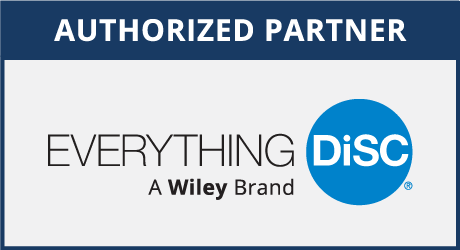Throughout my career I have had the privilege of working for bosses who had different leadership styles. Most of them had a direct, hands-on approach, which simply means they told me what to do and I did it. Even though I worked in an office environment, the culture was more like a factory. I knew exactly how things were supposed to work, what I was supposed to do, and if there was a problem I knew who to go to for the answer. And once I understood the written (and unwritten) responsibilities and rules of my job, there was absolutely NO THINKING and NO ENGAGEMENT required. Just put the square peg in the square hole.
On the other hand, I was also blessed to have a boss who had the opposite management style. He took a more non-directive approach. He did more listening than talking. He would ask instead of tell. While he provided guidance and direction, he asked me to think about solutions and recommendations. He was coaching when coaching wasn’t popular. As a result, not only was I engaged, I was invested. I didn’t just invest my head … I invested my heart!
Coaching leaders are powerful and inspiring. They drive critical thinking within the team by asking questions – not giving answers. They get their team invested by asking questions that challenge them to think about their situation, possible solutions, and successful outcomes in a different light. They ask questions to get the team’s input. They ask questions to ensure the team understands the goal. Plain and simple. They use the art of questioning to get their team invested in their work.
The following 5 tips will help you become a coaching leader.
- Focus on questions that solicit input. Patrick Lencioni, author of The Five Dysfunctions of a Team, writes a “reasonable individual does not need to get their way in order to support a decision, but only needs to know that their opinions have been heard and considered.” Asking for input implies you value and respect their thoughts. Sample questions include:
- What are three viable solutions?
- What is your personal recommendation?
- What do we need to do to prevent this from happening again?
- What does success look like to you?
- What support do you need from me?
- Focus on questions that are action-oriented. Drilling down into the details of what happened yesterday is generally not as productive as focusing on what needs to happen in the future. Examples of forward-moving questions include:
- What steps are necessary to move this forward?
- What do you need in order to ensure success?
- What is one thing you can do immediately that would make a difference?
- Use the other person’s preferred language. People process information by hearing, seeing, thinking, or feeling. The challenge is most people ask questions based on their own personal processing language, rather than the language of the other individual. So listen for clues and then adapt your questions. Examples include:
- Auditory – Which solution sounds like the best option to you?
- Visual – Which solution looks like the best option to you?
- Thinking – Which solution do you think is the best option?
- Feeling – Which solution do you feel is the best option?
- Ask for a commitment. We are having a conversation about a specific problem or opportunity … now what? Good ideas and strategic plans are great but without a commitment to action, they are of little value. Here are some sample questions to move the individual from thinking to actually doing.
- What part of this plan will be your responsibility?
- What do you commit to doing first?
- When do you commit to getting this done?
- What can I do to support you toward these goals?
- Ask your question and then wait. Don’t be afraid of silence. Remember, if you are speaking … they are not thinking. If they are speaking … they are not thinking. Give them permission and the opportunity to think.
Asking … not telling … may feel awkward at first. But I challenge you to try it. Just do it! Strong leaders are intentional in asking questions. Even if they already have the solution or know the answer, they are committed to the growth and development of their team. I challenge you to start today!
Strengths Coaching for you …
- What is your commitment to become a coaching leader?
- What is the payoff(s) for you as the leader?
- What are some specific changes you need to make to support your commitment to becoming a coaching leader?
- What are potential barriers that would interfere with your success as a coaching leader?
- What do you commit to doing first?




